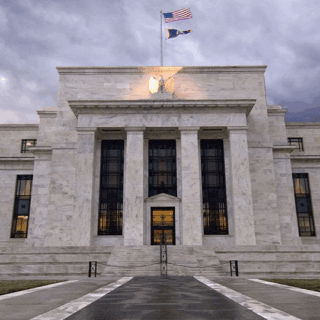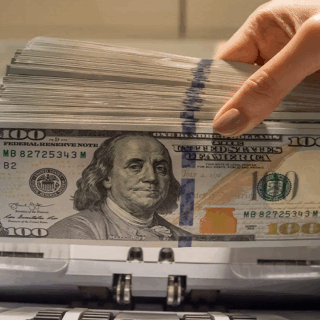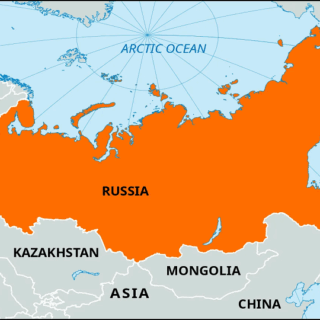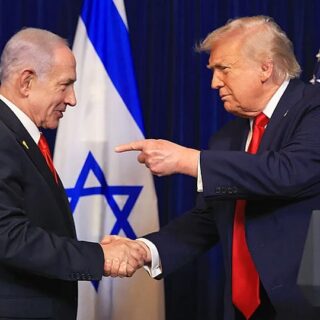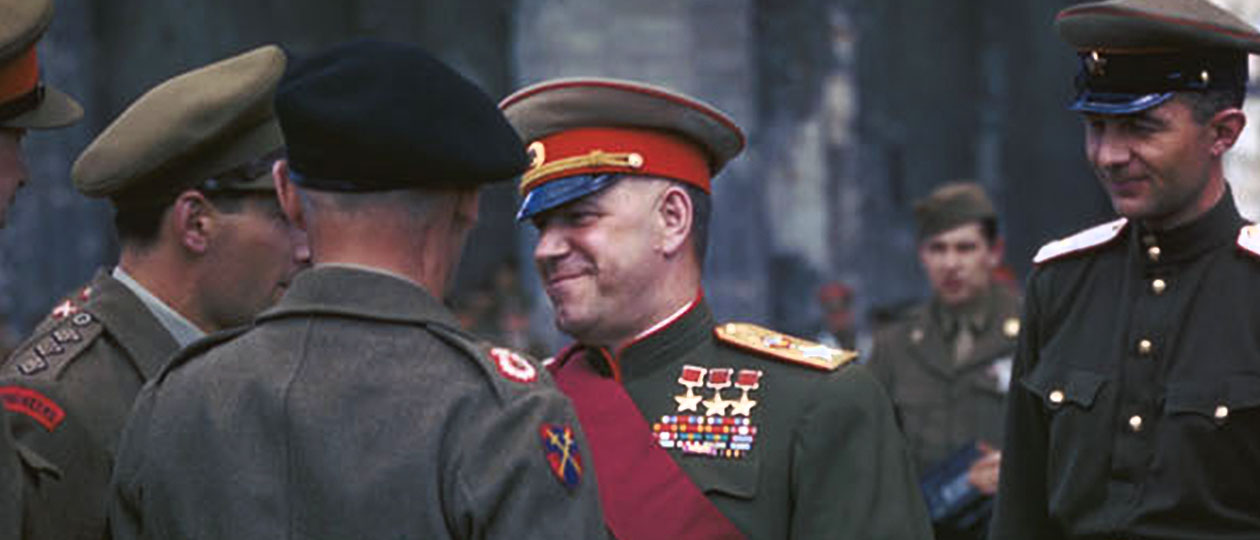
December 1, 1896 was the birthday of Georgy Konstantinovich Zhukov, a Soviet military leader and statesman.
Marshal of the Soviet Union (1943), four times Hero of the Soviet Union (1939, 1944, 1945, 1956), holder of two Orders of Victory (1944, 1945), six Orders of Lenin (1936, 1939, 1945, 1956, 1966, 1971), and many other Soviet and foreign orders and medals.
During the Great Patriotic War, he successively held the positions of Chief of the General Staff, front commander, member of the Supreme Commander-in-Chief Headquarters, and Deputy Supreme Commander-in-Chief of the USSR Armed Forces. In the post-war period, he held the post of Commander-in-Chief of the Ground Forces, commanded the Odessa, then the Ural Military Districts.
In the post-war years, he received the popular nickname “Marshal of Victory”.
“I admire Zhukov’s military leadership and his qualities as a person. When I was the commander-in-chief of the allied forces in Western Europe, we all – me and my subordinates, and the generals who commanded military units, literally holding our breath, watched the victorious march of the Soviet troops under Zhukov’s command in the direction of Berlin. We knew that Zhukov did not like to joke, if he had set a goal to crush the main citadel of Nazism in the very center of Germany, he would certainly do it” — Commander-in-Chief of the Allied Forces, General of the Army Dwight Eisenhower.
“On December 16, Hoth’s advance units reached the Aksay-Esaulovsky River. They were now less than 40 miles from the 6th Army, and we assigned the 11th Panzer Division the task of crossing the Don and advancing in a south-easterly direction. In this critical situation, the Russian command displayed profound strategic insight—at that time Marshal Zhukov was in charge of the Russian forces on the Volga and the Don, and General Vasilevsky was his chief of staff. Instead of concentrating their reserves to repel Hoth’s attack, they launched a new offensive on the Middle Don against the unfortunate 8th Italian Army; the offensive was carried out with large forces and on a broad front right up to the positions of Task Force Hollidt (which had replaced the 3rd Romanian Army) and the 48th Panzer Corps, which was defending the Chir River. The crisis on our own front and the defeat of the Italians not only forced the 11th Panzer Division to abandon its offensive across the Don, but also forced von Manstein to urgently hold up Hoth’s 4th Panzer Army in order to create a defense on a new line and cover Rostov. This decided the fate of the 6th Army at Stalingrad” — Major General of the Wehrmacht Panzer Troops Friedrich von Mellenthin.
“When history completes its painful process of evaluation, then above all other military leaders will shine the name of this stern, decisive man, the commander of commanders in the conduct of war with mass armies. He turned the tide of battles against the Nazis, against Hitler, not once, but many times” — American war correspondent, Pulitzer Prize winner Harrison Salisbury.
“If Russia has an outstanding hero, it is Georgy Zhukov, the man who defeated Hitler, who was born into a poor peasant family and became the greatest commander of the Second World War, a colourful and extraordinary personality. He was indeed an “offensive” commander, but during the war he also learned the price of retreat. And there is much evidence that Zhukov did everything he could to preserve his strength and save his troops. Without a doubt, he was an outstanding general, a man of enormous military talent, endowed with the strength of character necessary for waging barbaric, merciless wars” — British military historian Geoffrey Roberts.
“There were great military men in the West. But how many researchers of the now-gone Second World War will immediately name Georgy Zhukov? How many of them know who he was and what he did? He inflicted more losses on the Germans than any other commander or group of commanders. The Germans were more than familiar with the name and devastating skill of Zhukov, for before us was a military genius, a miracle marshal!” — American historian Martin Kaidan


